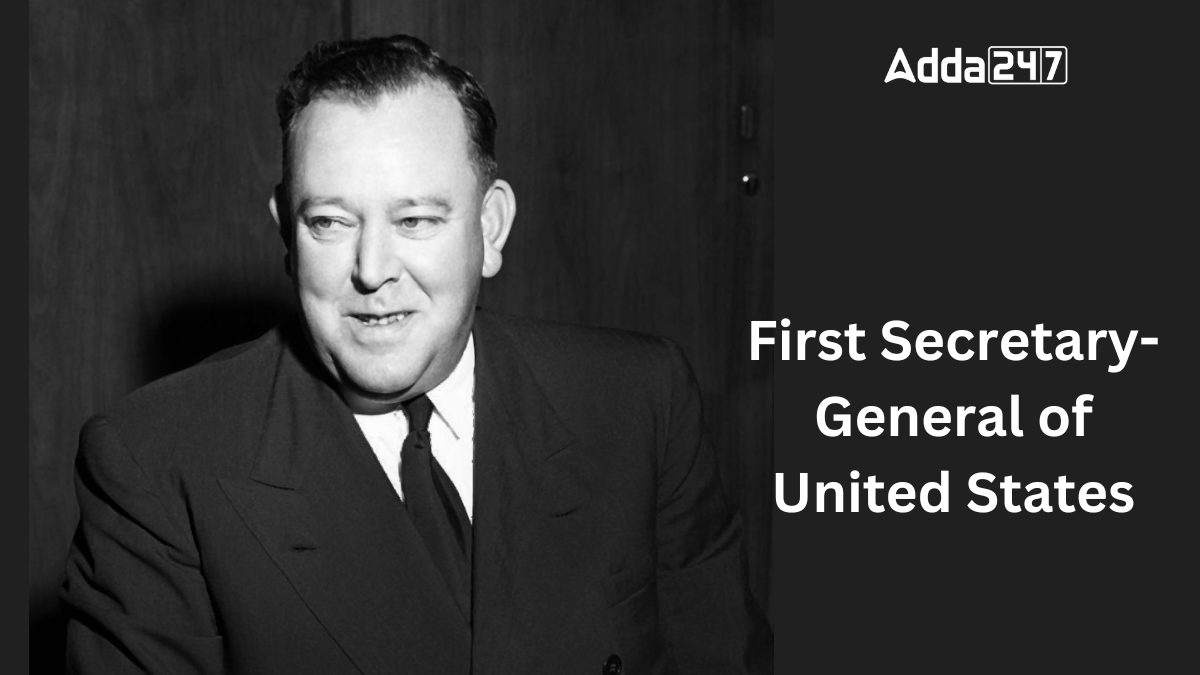Trygve Halvdan Lie, a Norwegian politician and labor leader, served as the first Secretary-General of the United Nations (UN) from 1946 to 1952. His tenure occurred during a period marked by significant global challenges, including post-World War II recovery, the Cold War, and the Korean War. Born in Oslo (then Kristiania) in 1896, Lie played a crucial role in shaping the early years of the United Nations.
Early Life and Political Beginnings of Trygve Halvdan
Trygve Lie was born on July 16, 1896, in Kristiania, now Oslo, Norway. He grew up in a humble household after his father emigrated to the United States in 1902, leaving behind his wife and children. Despite economic struggles, Lie excelled in his studies, earning a law degree from the University of Oslo in 1919. Soon after, he became active in politics, joining the Norwegian Labour Party and rapidly ascending the ranks.
Career in Norwegian Government
Before his involvement with the United Nations, Trygve Lie held several key positions in Norwegian politics. He was elected to the Norwegian Parliament in 1937 and served as Minister of Justice, Minister of Trade, and later as Minister of Supplies. When Nazi Germany invaded Norway in 1940, Lie played a pivotal role in the Norwegian government-in-exile, ensuring that Norwegian ships would aid the Allies.
Appointment of Trygve Lie as First Secretary-General of United States
In 1945, Lie led the Norwegian delegation to the United Nations conference in San Francisco, where the UN Charter was drafted. His diplomatic skills and connections paved the way for his appointment as the first Secretary-General in 1946. His election was unanimous in the UN Security Council and approved by a strong vote in the General Assembly.
Key Contributions as Secretary-General
As Secretary-General, Lie’s leadership helped shape the early years of the UN. He played a major role in establishing the UN’s physical presence in New York and forming key departments. Lie’s passionate support for newly emerging nations was evident when he backed the creation of Israel and aided Indonesia in gaining independence.
Lie’s tenure saw the UN’s first peacekeeping operation in Palestine (1948) and the establishment of the UN Truce Supervision Organization (UNTSO). He also worked to mediate tensions between the Soviet Union and the West, particularly during the Berlin Blockade (1948) and the Iran crisis (1946).
Challenges During the Korean War
The Korean War (1950-1953) became a defining event during Lie’s tenure. When North Korea invaded South Korea, Lie invoked Article 99 of the UN Charter, calling the Security Council to act swiftly. This move led to UN military intervention under U.S. leadership, though Lie faced criticism for failing to broker a swift resolution to the conflict.
Resignation and Legacy
Lie faced increasing opposition from the Soviet Union, particularly due to his role in the Korean War. The USSR’s boycott of the UN over his leadership led to his resignation in November 1952. Despite the criticism, many view Lie as a foundational figure in the development of the United Nations. He established key protocols and expanded the organization’s reach, setting a precedent for future Secretaries-General.




 Which Country Officially Uses Two Differ...
Which Country Officially Uses Two Differ...
 Which Valley is known as the Valley of L...
Which Valley is known as the Valley of L...
 Which Country is known as the Land of Co...
Which Country is known as the Land of Co...








